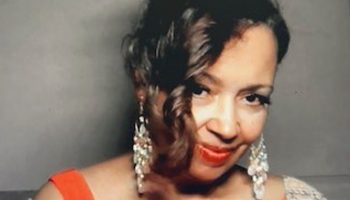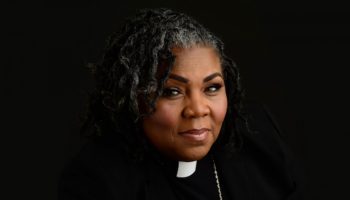The intellectual and cultural impact of Chautauqua Institution reverberates through every inch of America. While much has been said about the social progress of the original Chautauqua Institution at the time of its 1874 creation, fewer words have been spoken about its spin-off counterparts, also known as “daughter” Chautauquas, which were founded all across the country.
Existing archival records indicate that the earliest courses at Chautauqua Institution were not segregated. In fact, prominent Black leaders, such as orator and educator Booker T. Washington, was among its first lecturers and African Americans employed on the grounds could earn season tickets for their work.
However, the mere presence of Black Chautauquans did not stop other lecturers who occupied the Institution’s lecterns from espousing harmful and discriminatory racial rhetoric about African Americans. Minstrel shows, a popular genre of performance which featured mostly white actors in blackface acting out harmful stereotypes about African Americans through the use of racist caricature, were a regular occurrence.
Given their unenthusiastic reception in general Chautauqua spaces, some Black scholars who wished to partake in the intellectual movement took it upon themselves to create their own Chautauqua communities.
The African American Chautauqua Circle was founded in September 1913 by Henrietta Curtis Porter in Atlanta’s Old Fourth Ward at the behest of her colleague Ariel Serena Hedges Bowen, providing an invaluable community for Black thinkers. Bowen was a graduate of the Chautauqua Literary and Scientific Circle. Her husband, Dr. John W.E. Bowen Sr., also lectured at the Institution in 1899.
Although much of the Chautauqua Circle’s programming and goals aligned with that of the larger national Chautauqua movement, the Atlanta club also had its own distinct goals and agenda. For example, while the original Chautauqua Institution campus was co-ed, all of the Chautauqua Circle’s members were African American women. Among the club’s most notable alumni is Shirley Franklin who, in 2002, became the first woman to be elected mayor of Atlanta and the first African American woman to serve as mayor of a major Southern city. The club is still in operation today.
Each month, the women of the Chautauqua Circle would prepare research on issues that transcended geographic borders. Members would meet to discuss a variety of topics, ranging from the Mexican Revolution, to Bolshevism in Russia, the creation of the Panama Canal and the women’s suffrage movement.
There were many challenges that came with operating a Black women’s social club in the segregated South. Since Jim Crow laws and racial discrimination made it difficult to find venues from which to conduct monthly meetings, members would host the sessions out of their homes. This did not stop these women from cultivating an ornate experience each month, complete with expensive silver, fine china and linen tablecloths. At every meeting from 1918 onward, members would also gather to sing a song that is now known as the Black National Anthem: “Lift Every Voice And Sing.”
Social clubs like the Chautauqua Circle were composed of middle- and upper-class African Americans. These clubs served as the backbone of the Black elite. Even today, membership remains exclusive, with no more than 30 members at a time. One article published in a spring 1959 issue of the Journal of Negro Education indicates that the Chautauqua Circle was so exclusive that membership was typically inherited from one’s mother, or was contingent upon one’s proximity to men of wealth and status. This made the club inaccessible to those who were not firmly embedded within the Black elite.
And as for the club’s motto? “Keep moving, a standing pool becomes stagnant.”
Regardless of their class limitations, social clubs like the Chautauqua Circle provided upper-class Southern Black women with a sense of purpose and community at a time when Jim Crow laws made it difficult to navigate life as a Black person. In adapting the Chautauqua curriculum to fit the social club model, the women of Atlanta’s Chautauqua Circle were able to construct an innovative intellectual community beyond the confines of the Jim Crow South.
—Mariam Keita
AAHH Program Coordinator




